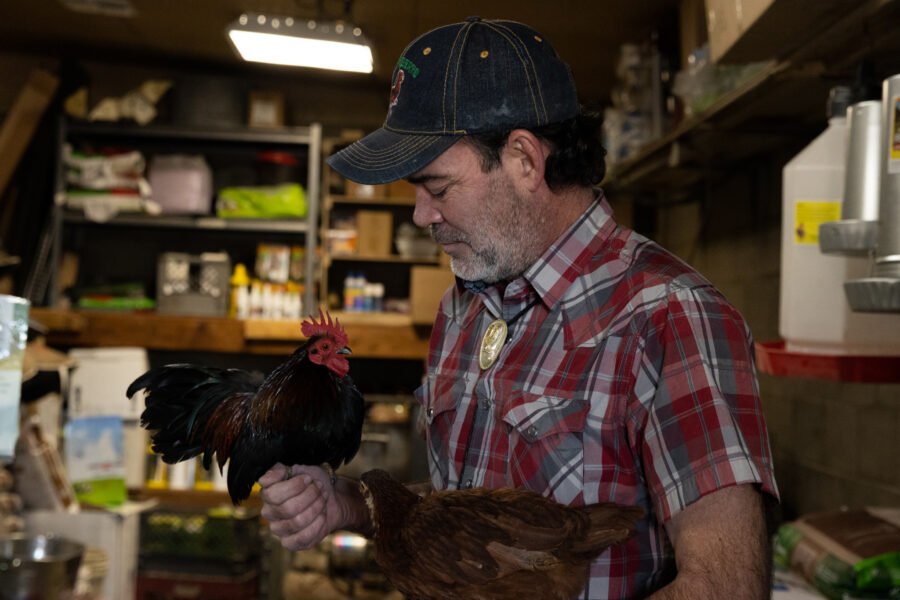animal rights
Arizona Senate Takes a Stand: Rising Egg Prices Halt Humane Treatment Laws

Arizona lawmakers are taking steps to repeal rules aimed at improving the welfare of laying hens, citing concerns over rising egg prices as justification for the change. The proposal, spearheaded by Senator Shawnna Bolick, R-Phoenix, has already received approval from a Senate committee.
If enacted, this legislation would revoke the Department of Agriculture’s authority to mandate a shift to cage-free systems for egg production. Originally scheduled for implementation this year, the rule’s enforcement has been postponed until 2026 due to the ongoing avian flu crisis affecting poultry.
Bolick’s measure would enable egg producers to confine hens in cages as small as 66 square inches throughout their lives, igniting renewed debate over animal welfare. Advocates for animal rights assert that this rollback could lead to greater public outcry.
The Department of Agriculture had previously adopted the cage-free requirement after facing pressure from advocacy groups, fearing that a voter-led initiative could impose even stricter regulations. This decision was backed by major producers, including Hickman’s Family Farms, Arizona’s largest egg producer.
As legislative discussions continue, the agricultural sector is vigorously lobbying against the rule. Critics warn that if the current measure succeeds, there is a real possibility that advocacy groups could return with a more stringent proposal, one that lawmakers might find difficult to overturn.
Chris Holbein, Public Policy Director for Humane World for Animals, emphasized his organization’s commitment to pursuing regulations that improve animal welfare. “We will continue to explore all of our options on it,” he stated, indicating a potential for future ballot measures if necessary.
This renewed controversy traces back to 2020 when the Humane Society of the United States proposed a measure requiring all eggs sold in Arizona to be sourced from cage-free operations. The egg industry initially responded by agreeing to a legislative compromise that delayed the implementation of such rules.
Now, amid rising egg prices and the sustained impact of avian flu on bird populations, industry representatives are arguing against upholding the cage-free requirement. Patrick Bray, a lobbyist for the Arizona Farm and Ranch Group, pointed to the loss of millions of birds due to the flu, stressing that the current situation necessitates flexibility in production standards.
Controversy continues over whether cage confinement significantly affects egg prices. Sam Richard, representing Humane World for Animals, challenged claims linking housing restrictions to increased costs, citing avian flu as a more critical factor in the current price surge.
Bolick, however, remains steadfast in her belief that repealing the rule could alleviate consumer pressures. In her statement, she noted dramatic price increases over the past four years and advocated for legislative action as a means to provide relief.
Historically, voter sentiment in Arizona has leaned toward animal welfare, as demonstrated by a 2006 initiative banning gestation crates for pigs and cattle. This context has not gone unnoticed by farmers, like Glenn Hickman, who fear stricter regulations could be imposed if legislative bodies fail to act.
Bray acknowledged the farmers’ initial capitulation to animal welfare demands stemmed from the threat of impending legislation, yet he now argues that the situation has evolved. The growing market pressures and public scrutiny surrounding egg prices could shift voter perceptions, potentially undermining calls for immediate change.
Despite legislative efforts to block the cage-free rule, some experts, including Sen. Mitzi Epstein, suggest that addressing underlying price issues, such as retail monopolies, may better serve consumers than relaxing animal welfare standards.
As the landscape shifts, concerns remain that rescinding the Department of Agriculture’s authority could hinder ongoing efforts to improve conditions for laying hens. Legal battles may ensue, as Tucson restaurant owner Grant Kruger has already filed suit against the agency for exceeding its remit in regulating egg production.
A trial date for Kruger’s lawsuit remains unconfirmed as all eyes turn to the legislature for a resolution on both agricultural policies and consumer concerns regarding egg prices.


















